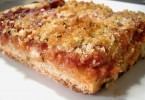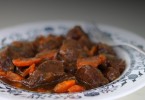Food additive, not only preservatives
Today we are more aware of the fact that we buy foods rich in food alternatives without caring that much. Despite the presence of biological food that pushed towards a healthier and balanced diet, the industrial production foresees the use of all those chemical elements to better preserve the foods.
“Food additive” are defined by the European Union:
“Food additive is any substance, usually not consumed as food and not as main ingredients of the foods, regardless the fact of it has a nutritive value, added intentionally to foods for a technological aim during the process of production, transformation, preparation, treatment, packing, transport and storing of the foods”
It is important to remind that the food additives were used before the industrialization of the market, from the moment when the meats were preserved in salt. Salt was considered an “additive” itself. Thus, it is necessary to make a distinctions between natural and chemical additives.
There are three big groups of additive depending on their function:
- Additives that help to preserve the freshness of the foods and they can be: preservatives, which slow down the growth of the microbes, and anti-oxidants that prevent the food to become acid
- Additives that improve the sensorial and organoleptic characteristics, as food coloring, thickeners, emulsifiers, sweetener, enhancer of sapidity.
- Technological additives called like this because they are used to make the treatment of the food easier but they don’t have a specific function in relation with the final product.
To know if something is harmful or not it is better to check always the food labels to know better the tables of the “E”, in fact the food additive always start with this letter.
Classification of the food additive:
- E100-E199 (food colourings)
- E200-E299 (preservatives)
- E300-E399 (anti-oxidants and corrector of acidity)
- E400-E499 (thickener, stabilizers and emulsifier)
- E500-E599 (corrector of acidity and antifoaming)
- E600-E699 (enhancer of stability)
- E900-E999 (various)
- E1000-E1999








